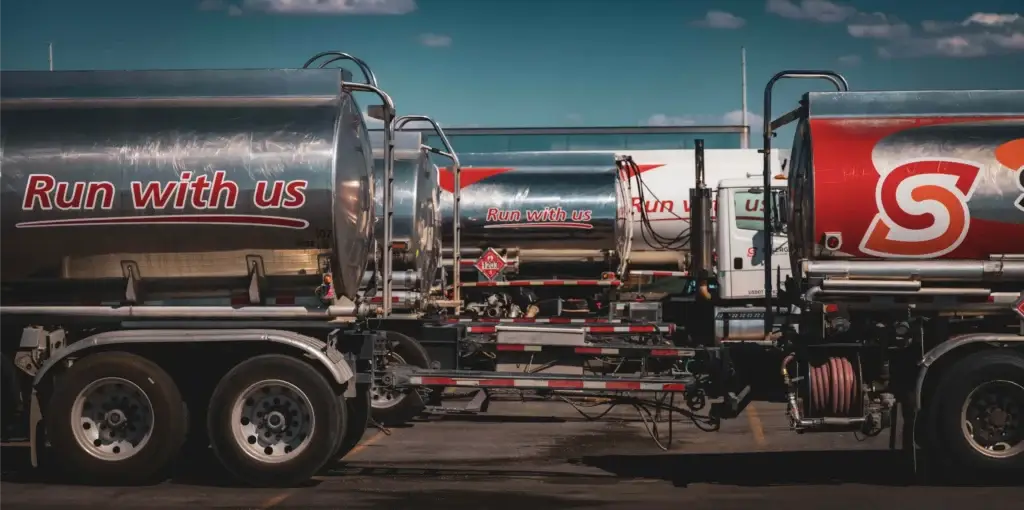How Fuel Quality Affects Engine Performance
Imagine filling your car with gasoline, expecting a smooth ride, only to find your engine sputtering, vibrating, or stuttering when you accelerate.
Most drivers would instinctively blame the engine itself or the last mechanic who serviced it.
But there’s a lesser-known culprit that often goes unnoticed: the quality of the fuel you’re using.
Fuel is a daily necessity, but not all fuel is created equal. The purity, chemistry, and storage conditions of fuel all affect your engine’s performance. Clean fuel, stored properly, ensures optimal engine function. On the other hand, dirty or poorly refined fuel can be a threat to the system—damaging parts, hindering performance, and driving up costs. Even when overlooked, fuel quality issues can trigger a chain reaction of mechanical problems that catch drivers off guard.
What Happens Inside Your Engine When Fuel Quality Drops
Inside your engine, a constant process is taking place. Fuel and air are mixed, compressed, and combusted to produce energy. When this process is disrupted by dirty fuel, the effects are felt throughout the system. Fuel contaminated with water, sediment, or microbial growth won’t burn cleanly, leading to incomplete combustion. This not only reduces engine power but also produces more harmful exhaust.
Low-quality fuel can cause issues such as engine stalling, improper idling, or engine pinging. Fuels with excessive ethanol or poor-quality additives can cause engine components to wear out over time. If your car is slow to accelerate or feels sluggish, the fuel could be the cause. In diesel engines, which operate at higher compression, dirty injectors and unstable combustion cycles often lead to performance problems.
When fuel doesn’t meet the demands of modern engines, it leads to inefficiencies that affect not only your vehicle’s performance but your wallet as well.
How Bad Fuel Grinds Down Your Engine
Engine parts must endure extreme pressure and precision. Pistons, valves, fuel injectors, and spark plugs all function smoothly—until dirty fuel enters the system. When fuel is contaminated with water, rust, or dirt, these particles don’t just travel through the system; they cling to and damage critical engine components. For example, water rusts metal parts, and even small amounts can cause rust to form in the fuel tank or injectors.
Low-octane or diesel fuel sometimes lacks the necessary detergents. Internal engine parts rely on these detergents to stay clean. Without them, harmful deposits build up in the combustion chamber, on valves, and around fuel injectors. Over time, these deposits increase friction and wear, ultimately shortening the engine’s lifespan. You may also notice symptoms of poor-quality fuel, such as reduced power, sluggish acceleration, or the check engine light coming on.
The irreparable damage caused by low-grade fuel cannot be overstated. It leads to serious degradation of engine components, sometimes to the point of requiring costly engine overhauls.
Increasing Maintenance Costs through a Deceptive Adversary
Perhaps the most frustrating aspect of bad fuel is that it doesn’t cause immediate, obvious damage. Instead, it gradually drains the life from your car over weeks or months. You’ll first notice small issues—poor mileage, sputtering at the line, or stalling. Many motorists overlook these early warning signs, and over time, the problems compound until something finally breaks. Once the dirty fuel reaches the fuel pump and injectors, it adds unnecessary strain. Replacing both can be expensive, especially in newer cars. What could have been a minor issue may turn into a costly repair, sometimes costing hundreds or even thousands, all because the wrong fuel was used.
Additionally, running dirty fuel multiple times can clog up your catalytic converter, a costly component responsible for controlling emissions. While it might seem like a good idea to save a few cents per gallon, in the long run, you could end up paying significantly higher repair costs.


Signs That You're Running Bad Fuel
It’s easy to blame engine failure on low-quality fuel, especially since the symptoms can be subtle at first and then suddenly become more obvious. You might notice the engine light misfiring or hard-starting, particularly on chilly mornings. The exhaust could have an odd smell or produce thick smoke. Low-quality fuel may cause your vehicle to shake excessively or lose power when going uphill or accelerating over time. Diesel engines are particularly prone to issues like over-smoking, surging, or stuttering, which are often signs of water contamination or microbial growth in the tank.
If you find yourself replacing parts more frequently or spending too much time at the shop, fuel quality could be the issue. Don’t ignore these signs of dirty fuel. Address them early by draining the tank, replacing the filter, or using a fuel treatment to avoid costly repairs. Sometimes, all it takes is switching gasoline stations to improve fuel quality and prevent further damage.
How to Prevent Fuel-Related Damage to Your Engine
The best defense against dirty fuel in your engine starts with being proactive. Begin by filling up at high-capacity, reputable stations that consistently supply fresh, clean fuel. Choose stations that proudly advertise meeting both international and local fuel standards. Additionally, consider investing in a fuel additive, especially if you’re concerned about contamination or need cleaner fuel lines. Additives help break up existing deposits, improve combustion efficiency, and can even drive off water through evaporation, preventing microbial growth in diesel tanks.
Regularly check your fuel filter during maintenance—it’s your first line of defense against dirt. If it’s dirty or clogged, it’s doing its job, but it also signals that your fuel quality may need attention. Replace it promptly. If you live in areas with summer gas blends or high humidity, be sure to inspect your fuel system more frequently. Prevention is always less expensive than repair.
Why It's Worth Caring What's in Your Tank
Fuel might seem like a small detail, but it plays a major role in your car’s health, performance, and long-term costs. Just like poor diet affects your body, low-quality fuel robs your engine of power, increases emissions, and leads to costly repairs.
Choosing the right fuel is simple—pay attention to where you fuel up, listen to your vehicle, and address any issues promptly. Recognizing signs of poor fuel, like engine knocking or sluggish performance, can save you from bigger problems. Your fuel choice is one of the most important decisions for your car’s longevity and efficiency.

